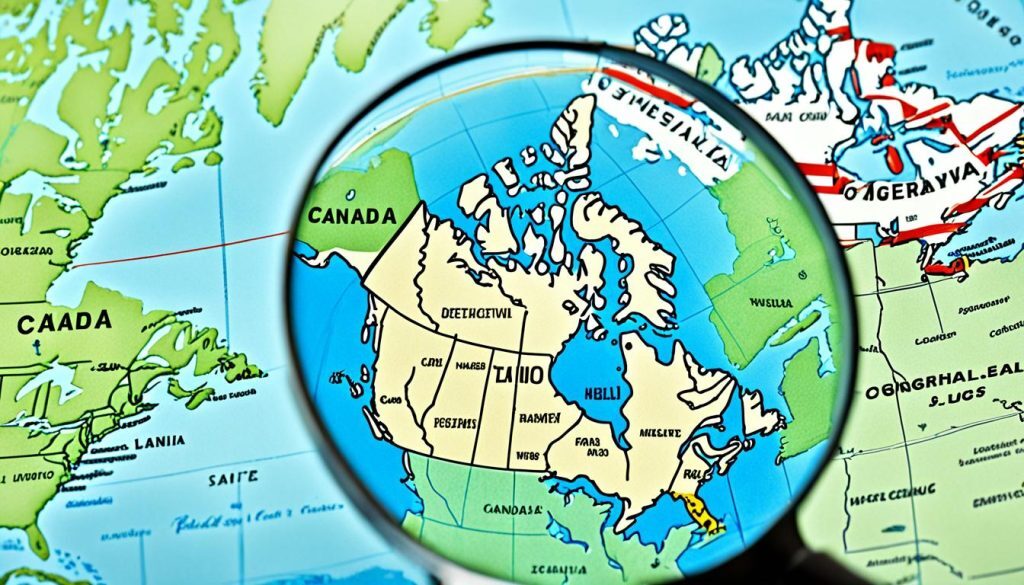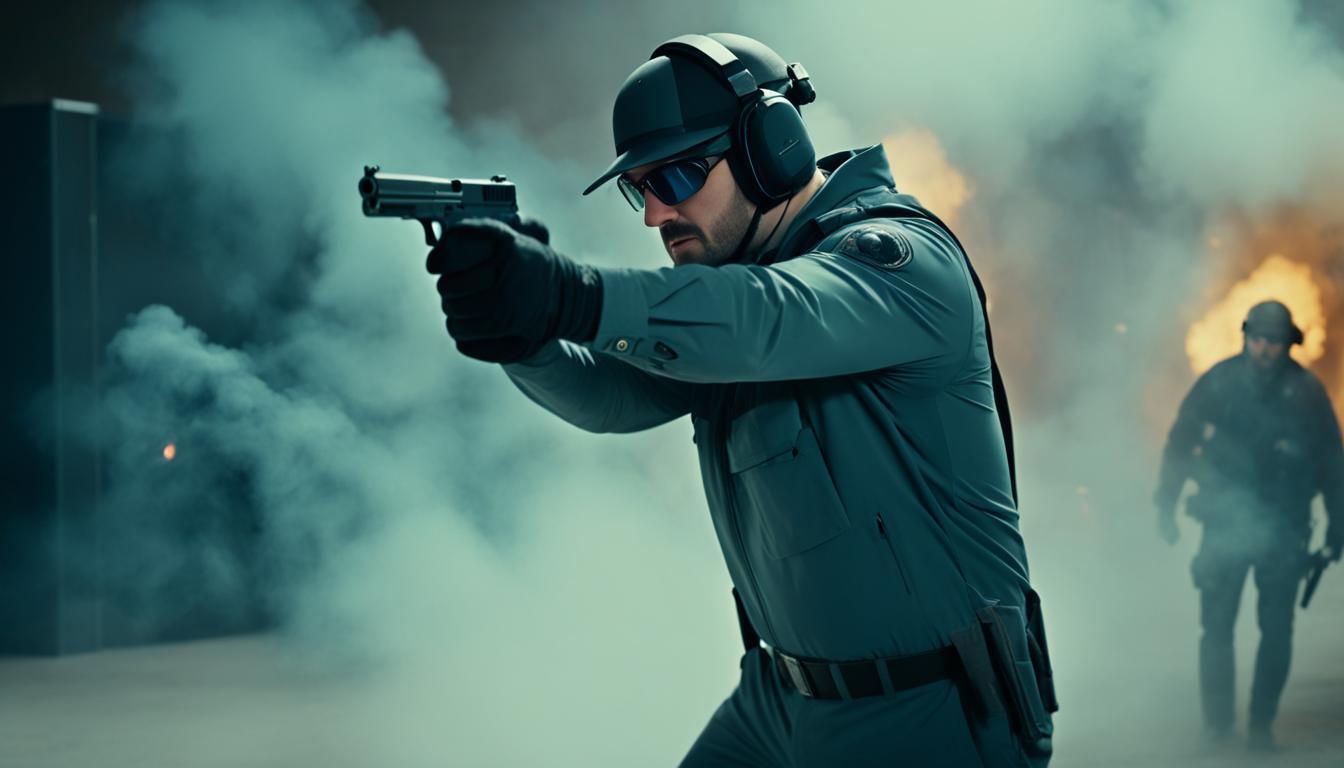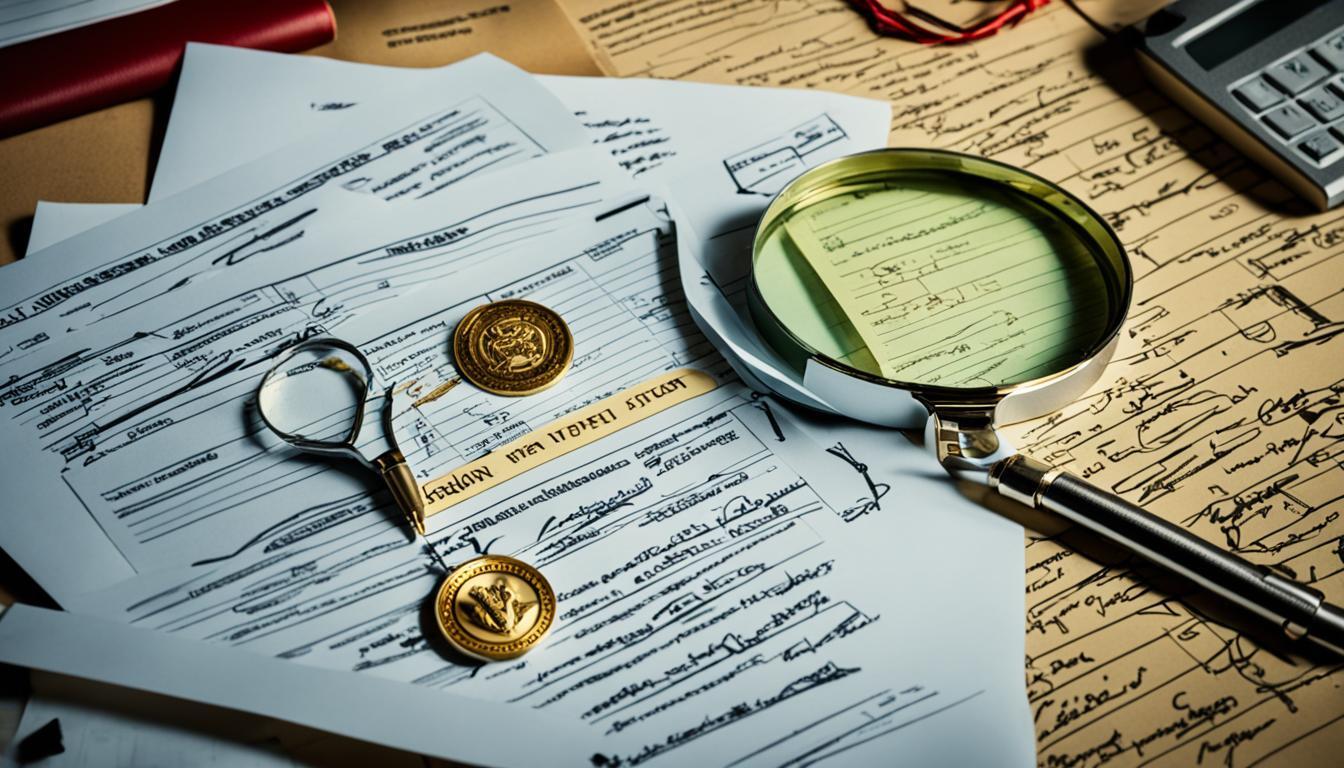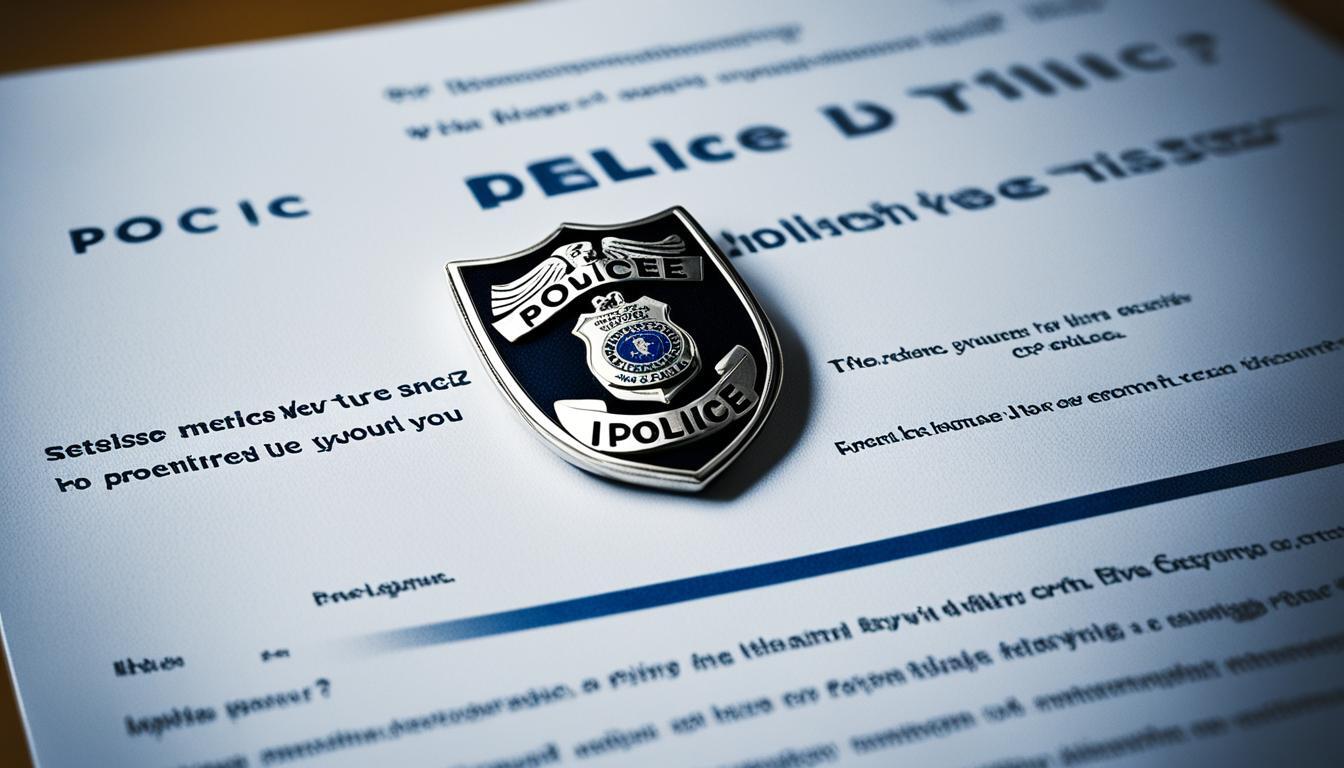Become a Detective in Canada: A Step-by-Step Guide
If you’re fascinated by crime scenes and have a passion for solving mysteries, a career as a detective in Canada might be perfect for you. Did you know that Canada has one of the highest rates of reported crime among developed countries? In fact, according to Statistics Canada, there were over 2 million criminal code incidents reported in 2019 alone.
In this article, I’ll provide you with a step-by-step guide on how to become a detective in Canada. We’ll cover the education requirements, training programs, essential skills, work environments, and more. So, let’s dive into the exciting world of detectives in Canada.
Key Takeaways:
- To become a detective in Canada, you need to meet specific education and training requirements.
- There are various types of detectives in Canada, including police detectives, private investigators, and specialized investigators.
- Strong communication, critical thinking, and problem-solving skills are essential for a successful career in detective work.
- Detectives work in diverse environments, including police departments, government agencies, and private investigation firms.
- Becoming a detective in Canada can be a rewarding career choice, but it requires dedication, resilience, and a commitment to seeking justice.
What Does a Detective Do in Canada?
Detectives in Canada play a crucial role in the criminal justice system, working diligently to investigate crimes, gather evidence, interview witnesses, and ultimately bring criminals to justice. They serve in various sectors, including local police departments, federal agencies like the RCMP (Royal Canadian Mounted Police), private investigation firms, or as self-employed consultants.
As detectives, their responsibilities encompass a wide range of tasks and duties. One of their primary responsibilities is to analyze evidence meticulously. They carefully examine crime scenes, collect physical evidence, and employ advanced forensic techniques to uncover hidden clues.

Collaboration is paramount in detective work. Detectives work closely with other law enforcement professionals, such as forensic experts and legal counsel, to compile comprehensive reports and build strong cases against criminals. They also engage in teamwork during complex investigations, sharing information and expertise to solve intricate puzzles.
Furthermore, detectives have the essential task of interviewing witnesses and suspects. With excellent communication skills and a keen eye for detail, they extract crucial information that can be instrumental in solving cases. They employ interviewing techniques to elicit truthful and accurate accounts, helping to uncover the truth behind criminal activities.
While detectives strive to ensure justice for victims and uphold the law, the nature of their work can be demanding both physically and mentally. They often work long hours, tirelessly pursuing leads and staying committed to solving cases. Moreover, detectives may face potentially dangerous situations, requiring them to stay vigilant, adaptable, and prepared to handle any challenges that arise in the pursuit of justice.
To summarize, detectives in Canada fulfill a crucial role in investigating crimes, gathering evidence, collaborating with other professionals, and pursuing justice for victims. Their work demands a combination of analytical skills, strong communication abilities, and a dedication to upholding the law. Despite the challenges they face, detectives contribute significantly to maintaining safety and security in Canadian communities.
The Different Types of Detectives in Canada
In Canada, there are several types of detectives who play crucial roles in law enforcement. Let’s take a closer look at each of these types:
- Police Detectives: Also known as investigative officers, police detectives work within specific departments to investigate crimes, gather evidence, and apprehend criminals. They collaborate with other law enforcement professionals to solve cases and ensure public safety.
- Private Investigators: Unlike police detectives, private investigators work independently or for individuals and businesses to conduct investigations on various matters. They often specialize in areas such as surveillance, background checks, and locating missing persons.
- Forensic Investigators: Forensic investigators utilize scientific methods to analyze evidence and help solve crimes. With expertise in fields like DNA analysis and fingerprint identification, they provide valuable insights that support investigations and contribute to the justice system.
- Arson Investigators: Arson investigators specialize in investigating fires and explosives incidents. They work closely with fire departments, law enforcement agencies, and insurance companies to determine the cause and origin of fires, as well as identify any criminal activity.
- Federal Investigators: Federal agencies, such as the RCMP, have their own specialized detectives who focus on combating organized crime and smuggling activities. These detectives play a vital role in maintaining national security and upholding federal laws.
Each type of detective in Canada contributes to the overall goal of ensuring justice and safety. Whether it’s solving crimes, gathering evidence, conducting private investigations, or utilizing scientific expertise, detectives play a crucial role in our society.

How to Become a Detective in Canada
If you want to become a detective in Canada, there are certain steps you need to take. Firstly, you’ll need to have the right education and training. Most agencies prefer candidates with at least a bachelor’s degree in criminal justice or a related field. Additional training through police academies or specialized programs focused on investigative techniques and crime scene analysis is also necessary.
In addition to education and training, possessing strong communication skills, attention to detail, critical thinking ability, and problem-solving skills is important. Gaining experience working as a police officer or in related fields can also be valuable for a future career as a detective.
| Steps to Become a Detective in Canada | Education Requirements | Detective Training Programs |
|---|---|---|
| 1 | Obtain a bachelor’s degree in criminal justice or a related field | Complete specialized training programs offered by police academies or law enforcement agencies |
| 2 | Gain experience through internships or entry-level positions in law enforcement | Participate in detective training programs that focus on investigative techniques and crime scene analysis |
| 3 | Apply to become a police officer and work in a patrol or law enforcement position | Attend workshops and seminars to enhance skills in communication, critical thinking, and problem-solving |
| 4 | Pass the required background checks, physical fitness tests, and psychological evaluations | Stay updated on the latest advancements in detective work through continuing education and professional development |
| 5 | Apply for detective positions within law enforcement agencies or private investigation firms |
If you are passionate about solving crimes and have the dedication to pursue a career in detective work, following these steps will set you on the path to becoming a detective in Canada. Remember, a combination of education, training, experience, and essential skills is crucial for success in this challenging yet rewarding profession.
The Education and Training Required to Become a Detective in Canada
Becoming a detective in Canada requires significant education and training. While there is no specific degree requirement, most employers prefer candidates with a bachelor’s degree in criminal justice or a related field. This educational foundation provides aspiring detectives with a solid understanding of the legal system, criminal behavior, and investigative techniques.
In addition to a degree, specialized training through police academies or other law enforcement agencies is necessary. These training programs focus on equipping future detectives with the necessary skills and knowledge to excel in their roles. They cover a wide range of topics, including investigative techniques, evidence collection and analysis, surveillance methods, and crime scene processing.
Physical fitness tests and background checks are also essential components of the selection process. Detectives often work in physically demanding and high-stress situations, so physical fitness is crucial to perform their duties effectively. Background checks ensure that candidates have the necessary integrity and ethical standards required for this line of work.
Strong interpersonal and critical thinking skills are crucial for detectives in Canada. They must be able to communicate effectively with victims, witnesses, and suspects to gather information and build strong cases. Critical thinking skills are necessary for analyzing complex evidence, connecting the dots, and making informed decisions.
It’s important to note that education and training are ongoing throughout a detective’s career. The field of criminal investigation is constantly evolving, with new technologies and trends emerging. Therefore, detectives must stay updated on the latest advancements through continuous professional development programs and training sessions.
Overall, the education and training requirements for becoming a detective in Canada ensure that individuals possess the necessary qualifications and skills to effectively carry out their responsibilities and contribute to the safety and security of the country.
Education and Training Requirements for Detectives in Canada
| Requirement | Description |
|---|---|
| Bachelor’s Degree | Most employers prefer candidates with a bachelor’s degree in criminal justice or a related field. |
| Specialized Training | Training programs offered by police academies and law enforcement agencies cover investigative techniques, evidence analysis, surveillance methods, and crime scene processing. |
| Physical Fitness Tests | Candidates must pass physical fitness tests to ensure they can handle the physical demands of the job. |
| Background Checks | Background checks are conducted to assess candidates’ integrity and ethical standards. |
| Interpersonal Skills | Strong interpersonal skills are necessary for effective communication with victims, witnesses, and suspects. |
| Critical Thinking Skills | Detectives must possess strong critical thinking skills to analyze evidence and make informed decisions. |
The Skills Needed to Be a Successful Detective in Canada
Being a successful detective in Canada requires a unique set of skills. As I continue to explore the exciting world of detectives, let’s take a closer look at the qualities and job requirements that make Canadian detectives effective in their pursuit of justice.
- Effective Communication Skills: Detectives must possess excellent communication skills to gather information from witnesses, victims, and suspects. Clear and concise verbal and written communication is essential for conducting interviews and compiling accurate reports.
- Critical Thinking and Problem-Solving Abilities: Analyzing complex evidence and connecting different elements of a case requires strong critical thinking skills. Successful detectives can think outside the box and devise innovative strategies to solve challenging crimes.
- Attention to Detail, Organization, and Time Management: Detectives need to maintain meticulous records, handle multiple cases simultaneously, and meet deadlines. Attention to detail, organization, and effective time management are essential for staying on top of investigations.
- Empathy and Cultural Awareness: Building trust with diverse communities involves empathy and cultural awareness. Detectives should be sensitive to the needs and experiences of individuals from different backgrounds and use this understanding to forge strong relationships.
- Technical Expertise and Interpersonal Skills: Detectives need to navigate complex investigations using various technological tools and databases. In addition to technical expertise, strong interpersonal skills are vital for building relationships with victims, witnesses, colleagues, and other stakeholders in the justice system.
To be an effective detective, honing these skills and qualities is crucial. By combining technical know-how, critical thinking abilities, and effective communication, successful detectives in Canada can navigate the intricacies of criminal investigations and bring justice to those who need it.
| Skill | Description |
|---|---|
| Effective Communication Skills | Gathering information from witnesses, victims, and suspects through clear and concise verbal and written communication. |
| Critical Thinking and Problem-Solving Abilities | Analyzing complex evidence and connecting different elements of a case to devise innovative strategies for solving crimes. |
| Attention to Detail, Organization, and Time Management | Maintaining meticulous records, handling multiple cases simultaneously, and meeting deadlines. |
| Empathy and Cultural Awareness | Building trust with diverse communities through understanding and sensitivity. |
| Technical Expertise and Interpersonal Skills | Utilizing technological tools and databases while building relationships with the individuals involved in investigations. |
The Work Environment of Detectives in Canada
As detectives in Canada, our work takes place in diverse settings, including police departments, private investigation firms, and government agencies. We play a crucial role in collecting evidence, conducting surveillance, and interviewing suspects and witnesses to solve crimes.
At crime scenes, we meticulously gather evidence and analyze it to uncover vital clues that can lead to the identification of perpetrators. This hands-on work allows us to piece together the puzzle and bring justice to victims.
Private investigators enjoy more flexibility in their schedules, with the ability to travel to different locations or conduct research online. This adaptability allows us to tackle cases both locally and remotely, ensuring comprehensive investigations.
However, being a detective requires dedication and readiness for the unexpected. We often work long hours and maintain an unpredictable schedule as criminal investigations can arise at any moment. Despite the challenges, the satisfaction of contributing to the safety and security of our communities makes the detective profession truly fulfilling.
- Quebec Police Officer Salary Insights 2023 - July 13, 2025
- Canada Arrest Protocol: What Police Say Upon Arrest - June 12, 2025
- Can Police Disclose Who Reported You? Find Out Here - June 6, 2025




















Post Comment